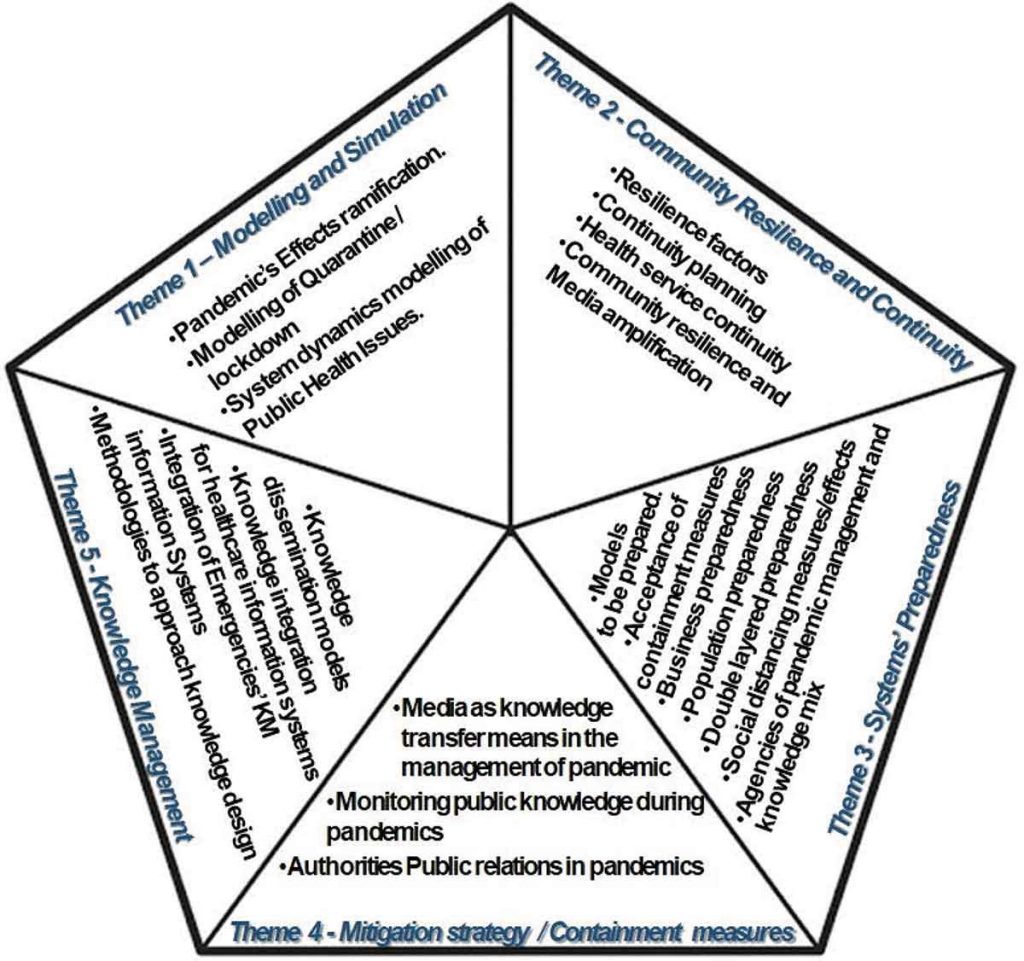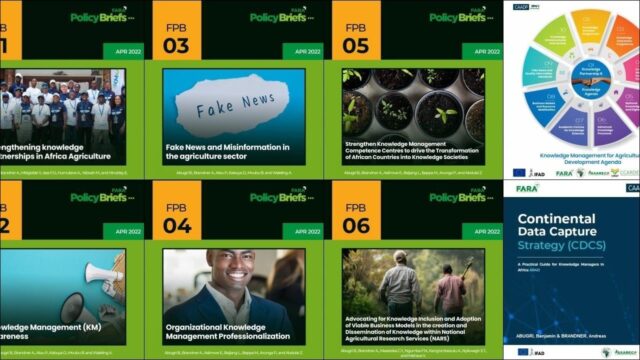
How well has knowledge management research helped preparation for COVID-19?
The 2016 report1 of the United Nations High-level Panel on the Global Response to Health Crises, published four years in advance of the current COVID-19 pandemic, stated that “Despite the significant threat, global efforts to prepare for epidemics have been woefully insufficient.”
A newly published paper2 from researchers at the University of Calabria in Italy contends that this lack of preparation has extended to knowledge management (KM) research. The researchers state that:
Despite the critical role of knowledge management in pandemics, that inform and enable decision-makers, the literature on this specific issue is poor, fragmented, mainly addressed by “health” journals and marginally addressed by the “knowledge management” scholars.
To provide a foundation for future research to fill the gap in KM research literature, the researchers carried out a critical literature review. The critical or integrative literature review approach3 is appropriate for this research focus because it seeks to review, critique, and synthesise representative literature on a topic in an integrated way such that new frameworks and perspectives on the topic are generated.
The researchers advise that the findings of their critical review are of primary relevance to the scientific community, which should start contextualising and testing KM theories in pandemics and developing innovative approaches. Then, decision-makers and emergency authorities could have more theoretical framing and knowledge, to be able to see the issues and problems they face in practice with a systemic and integrated view.
KM for pandemics is not like for other disasters
To provide a context for this future research, the researchers make the very important point that from a KM perspective, pandemics are not like other disasters.
Pandemics have a number of key characteristics that are distinct from those of other natural disasters such as earthquakes, bushfires, and floods. These include:
- pandemics have a wave pattern behaviour, and might re-infect the same affected area or population
- disease outbreaks can cross geographic boundaries to become a global phenomenon, and have mutative and adaptive behaviours
- pandemics are population discriminative (that is, there are particular classes of people that are more vulnerable than others)
- spread patterns are influenced by different factors including pathogen contagion, demography, and behaviour, creating hotspots that “move” uncontrolled to other locations depending on population movement
- disease outbreaks have a deterministic and high effect on the health workforce itself (thus reducing the capacity of health systems to react).
One basic, crucial difference between pandemics and other natural disasters is that pandemics are not single, discrete, and time-bounded events. Pandemics are instead a continuous process that operates over a time horizon which lasts until there is extinction of the pathogen or the introduction of a vaccine. In other natural disasters, KM serves to assist and support post-event survivors, but in pandemics, KM is also vital to prevent infections and deaths. This means that KM in pandemics has a higher strategic objective than in other disasters, aiming to actively save life.
Another crucial difference is that while other disasters are bounded in spread and damage, typically being very localised, pandemics can spread globally, and their economic impacts propagate over time and across countries. This implies a second and distinctive feature of KM in pandemics: the management of knowledge needs to cross different knowledge domains (health, economic, social) and political and governmental boundaries, requiring a balance among contrasting objectives in these domains.
These key differences mean that standard approaches to disaster management are less relevant to pandemics. Disaster management aims to reduce or avoid the potential losses from hazards, assure prompt and appropriate assistance to victims of disaster, and achieve rapid and effective recovery. Pre-disaster reduction is performed by risk and vulnerability assessment, risk reduction, and disaster preparedness. Post-disaster recovery is performed through relief, early recovery transition, and reconstruction.
However, pandemics have a slow and progressive explosion, which overlaps and interacts with relief and recovery. While there is an urgency of managing early recovery, a similar (if not higher) urgency needs to be devoted to risk reduction and the preparedness of other populations. Disaster management phases and targets overlap, and the KM process requires coordination and informed decisions.
KM can enhance the process of disaster management, through ensuring the availability and accessibility of accurate and reliable disaster risk information when required, and through effective lesson learning.
Themes and topics
An initial search of the Elsevier Scopus database returned a list of 1,081 papers that were potentially suitable for the critical literature review. However, after the screening step, a sample of just nine papers remained. Because of the narrow scope of the research, and because of the emerging lack of sources, an additional search was conducted using Google Scholar. The aim was to integrate a significant number of sources that addressed any relevant issue to KM in pandemics, and to achieve a comprehensive picture of the topic. A list of 27 articles was identified through this additional search, bringing the total number of articles for the review to 36.
The 36 papers were assessed and labelled with their main theme and main topics (Figure 1).

In summary, the five themes are:
- Theme 1 – modelling and simulation. This theme addresses the crucial role of models and simulations to facilitate and support decision-maker interactions around emergency response scenarios. Simulation gives policymakers the ability to see the real-time impact of their decisions.
- Theme 2 – community resilience and continuity. During pandemics, health systems are called upon to manage exceptional situations without interrupting essential services to the population. The ability to accomplish this dual mandate is at the heart of resilience strategies.
- Theme 3 – system preparedness. There is little time for thoughtful and rapid reflection once a pandemic strikes, and therefore preparedness is an unavoidable priority. Modelling and simulations are key resources in pandemic planning to map out interdependencies and support complex decision-making.
- Theme 4 – mitigation strategy / containment measures. Mitigation and containment involves the analysis and assessment of the compliance of social groups to public health pandemic control measures. Willingness to comply depends basically on the quality of knowledge received by a recipient, and on the severity of the pandemic.
- Theme 5 – knowledge management. This theme encompasses topics and issues more strictly related to the KM body of literature.
Limitations of the research
The researchers state that the main limitation of their research is the representativeness of the research sources reviewed. Their search was limited only to refereed papers published in recognised international journals or selected conference proceedings. However, they suggest that the results of their research could be extended by also including books and reports readily available in English in the analysed sample, for example, governmental health reports and strategies. This could give a flavour of management in action for COVID-19.
I argue that there are also other limitations in the research. I suggest that refereed papers, books, and reports written in languages other than English should also be included. Further, refereed papers, books, and reports addressing complexity in regard to KM, the impacts of cognitive biases on KM, and dark side KM tactics should be included. As I’m discussing in an article series, these topics are of critical importance to KM for pandemics.
Header image source: StockSnap on Pixabay, Public Domain.
References:
- Kikwete, J., Amorim, C., Calmy-Rey, M., Natalegawa, M., Phumaphi, J., & Shah, R. (2016). Protecting humanity from future health crises: Report of the High-level Panel on the Global Response to Health Crises. New York: United Nations. ↩
- Ammirato, S., Linzalone, R., & Felicetti, A. M. (2020). Knowledge management in pandemics. A critical literature review. Knowledge Management Research & Practice, 1-12. ↩
- Torraco, R. J. (2005). Writing integrative literature reviews: Guidelines and examples. Human resource development review, 4(3), 356-367. ↩
Also published on Medium.






